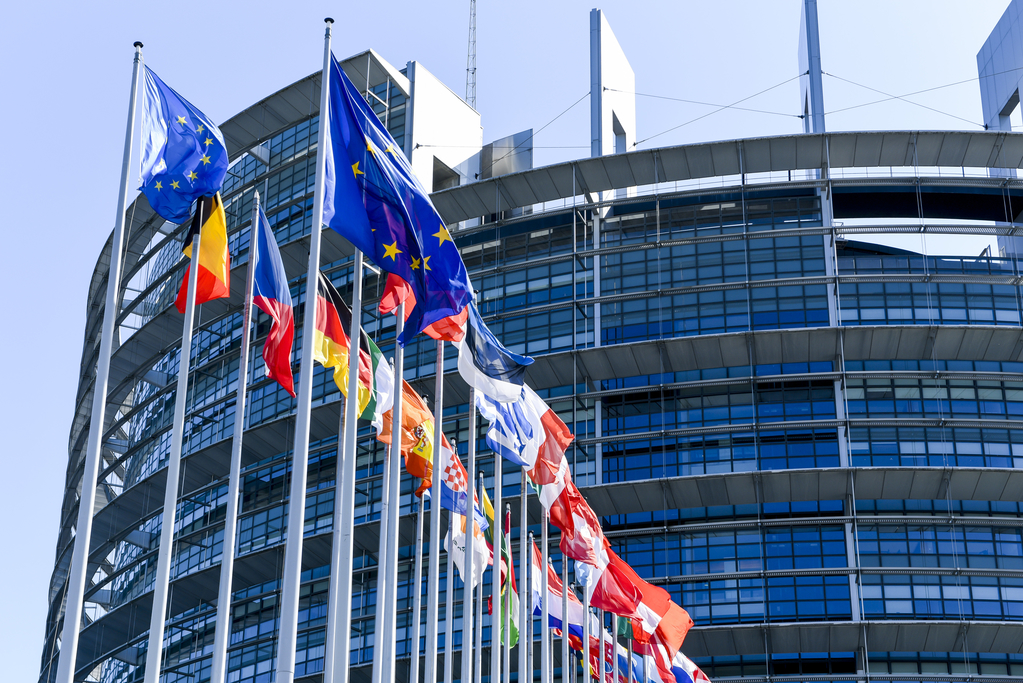Polling stations opened bright and early in the Netherlands this morning, kicking off a marathon weekend of voting across the EU's 27 Member States to elect the next European Parliament.
Between today and Sunday more than 370 million European citizens are eligible to vote in the tenth European elections, and if turnout is similar to the last elections in 2019 about half of Europeans will cast their ballot. If you believe a recent Eurobarometer poll, some 71% of Europeans say they intend to vote this weekend, a ten-point increase from 2019.
The Netherlands is the first and only Member State to open polling stations today, followed by Ireland tomorrow, and Latvia, Malta and Slovakia on Saturday. Meanwhile, voting takes place across two days in Czechia (Friday and Saturday) and Italy (Saturday and Sunday).
The other 20 EU countries, including Belgium, will hold their elections on Sunday, with the first provisional results expected to come in on Sunday night.
720 seats up for grabs
Europeans are voting this weekend to elect the 720 members of the next European Parliament, one of seven EU institutions and the only one where officials are directly elected by citizens.
The size of the European Parliament has fluctuated in recent years, as Brexit saw the number of seats dip from 751 to 705 during the current five year term. However, prompted by demographic changes across the EU the European Council decided to up the number of seats to 720 for the next Parliament.
There are currently seven political groups in the European Parliament. In order of size, starting with the party that currently holds the most seats in Parliament, these are: the European People's Party (EPP), Social Democrats (S&D), Renew Europe, the Greens/European Free Alliance group, the European Conservatives and Reformists (ECR), Identity and Democracy (ID), and the Left.
All eyes on the far-right
While polling suggests that the centre-right EPP should remain the political force with the most seats in Parliament, followed by the centre left S&D, all eyes will be on the two most radical right-wing ECR and ID.
2019 saw a 'green wave' of support for Green candidates, but it is expected that this time around there will be a surge in support for right wing parties, and in particular the headcount of far-right MEPs is predicted to swell.
Only time will tell what this will mean for who will be steering the ship in the next European Parliament. Recent history has seen the Parliament's more centrist parties join forces in coalition, but this time around EPP has not ruled out working with the far right.
After the 720 MEPs are elected, negotiations can begin on the makeup of political groups - with talks already in progress among right-wing parties about reconfiguring, potentially to form a larger far right group.
Any new political group will have to consist of at least 23 MEPs from at least seven Member States, and will have to notify the Parliament of their names, political declaration and composition by 15 July.
The new EU legislature will officially start on 16 July, when newly elected MEPs will meet in Strasbourg to elect the Parliament president, 14 vice-presidents and five quaestors (responsible for financial and administrative matters), as well as start the process of forming committees.
Voting in a new Commission President
The Parliament will also have to vote on who gets the job of European Commission President, which could take place after the summer recess, in September.
Current Commission President Ursula von der Leyen was until recently considered a shoe-in to hold on to her position for a second term, but coming into the final days of campaigning the level of support she has among Member State leaders, political parties and individual MEPs is increasingly uncertain.
Most European political parties have put forward lead candidates (Spitzenkandidaten) for the presidency. These are: Ursula von der Leyen (Germany) for EPP, Nicolas Schmit (Luxembourg) for S&D, Marie-Agnes Strack-Zimmermann (Germany), Sandro Gozi (Italy) and Valérie Hayer (France) for Renew, Terry Reintke (Germany), Bas Eickhout (the Netherlands), Raül Romeva (Spain) and Maylis Roßberg (Germany) for the Greens/EFA group, and Walter Baier (Austria) for the European Left.
The Identity and Democracy (ID) and the European Conservatives and Reformists (ECR) groups have not officially appointed any lead candidate.

